
Data from the ASC4FIRST trial support the accelerated approval of asciminib in this CML population.

Your AI-Trained Oncology Knowledge Connection!


Data from the ASC4FIRST trial support the accelerated approval of asciminib in this CML population.

Data presented from a pilot study evaluating HERC validated its usability in measuring equitable practices at leading cancer centers.
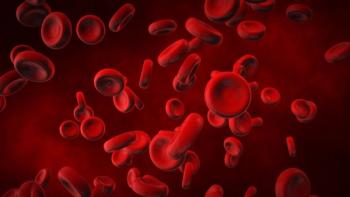
The expanded approval of methotrexate may offer a convenient alternative to pediatric patients who have difficulty swallowing pills.

Data from TROPiCS-04 did not meet the primary end point of overall survival among those with locally advanced or metastatic urothelial cancer.

STX-478 showed efficacy in patients with advanced solid tumors regardless of whether they had kinase domain or helical PI3K mutations.

STX-478 may avoid adverse effects associated with prior PI3K inhibitors that lack selectivity for the mutated protein vs the wild-type protein.

Phase 1 expansion data may support potential combination development for IDE397 in NSCLC and urothelial cancer harboring MTAP deletions.

Maha Hussain, MD, FACP, FASCO, spoke about BRCA testing and ctDNA as diagnostic tools and PSMA-imaging and -targeted approaches in prostate cancer.

Ginger J. Gardner, MD, FACOG, highlights disease prevention innovations and other ongoing efforts to empower education in the gynecologic cancer field.

Additional genetic testing measures and targeted therapies may improve outcomes for patients with diverse molecular subgroups of gastric cancers.

A panel of experts in multiple myeloma discussed strategies for monitoring and mitigating adverse effects associated with GPRC5D-targeting bispecific agents.

Findings from 3 studies combining birth and cancer registers showed postponing childbearing partially correlated with cancer increases in pregnant women.

Experts discussed the efficacy and durability of immunotherapy responses in patients with NSCLC.

Phase 1 data may show the possibility of rationally designing agents that can preferentially target PI3K mutations in solid tumors.
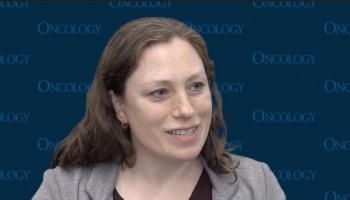
Funding a clinical trial to further assess liquid biopsy in patients with Li-Fraumeni syndrome may help with detecting cancers early across the board.

Promising phase 1 data appear to support further evaluation of ZL-1310 as a treatment for patients with extensive-stage small cell lung cancer.
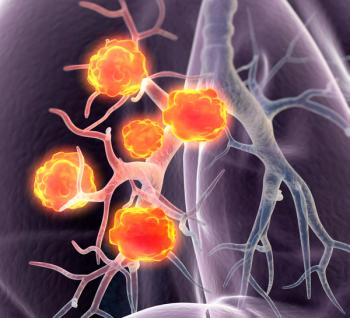
A panel of experts focused on the use of dual immunotherapy options for patients with metastatic NSCLC without driver mutations.

The FDA has set a Prescription Drug User Fee Act date of April 26, 2025, for TLX101-CDx as an imaging agent for patients with glioma.

Data from the SPOTLIGHT and GLOW trials reveal that zolbetuximab increased survival in patients with CLDN18.2-positive gastric or GEJ adenocarcinoma.

Investigators from the United States, United Kingdom, Canada, and Germany look to conduct a primary prevention trial in patients with Li-Fraumeni syndrome.

Data from KEYNOTE-868 and KEYNOTE-A18 support the approval of pembrolizumab-based therapy in endometrial and cervical cancer, respectively.

Experts in non–small cell lung cancer met to debate the latest advances and treatment options and the hottest topics in the space.

The incorporation of zolbetuximab in addition to chemotherapy has shown benefit in patients with Claudin 18.2–positive gastric cancers in clinical trials.

Four of 13 patients with metastatic breast cancer recruited in 2022 for the phase 2 clinical study evaluating Bria-IMT remain in survival follow-up.

Michael J. Hall, MD, MS, FASCO, discusses the need to reduce barriers to care for those with Li-Fraumeni syndrome, including those who live in rural areas.
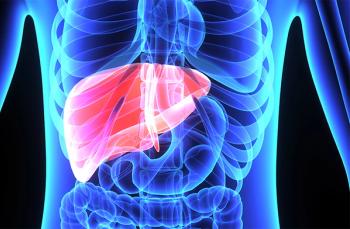
The resubmission included an analysis of the phase 3 CARES-310 study, which reported favorable overall survival with the combination therapy in uHCC.

Jenan Dailey, PharmD, BCAP, spoke about the approval of lazertinib plus amivantamab as first-line treatment for patients with locally advanced or metastatic NSCLC.

Patrick Oh, MD, highlights next steps for further research in treating patients with systemic therapy in addition to radiotherapy for early-stage NSCLC.
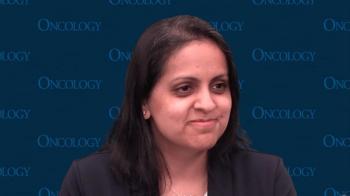
The ability of metformin to disrupt mitochondrial metabolism may help mitigate the risk of cancer in patients with Li-Fraumeni syndrome.

Increased use of systemic therapies, particularly among patients with high-risk node-negative NSCLC, were observed following radiotherapy.